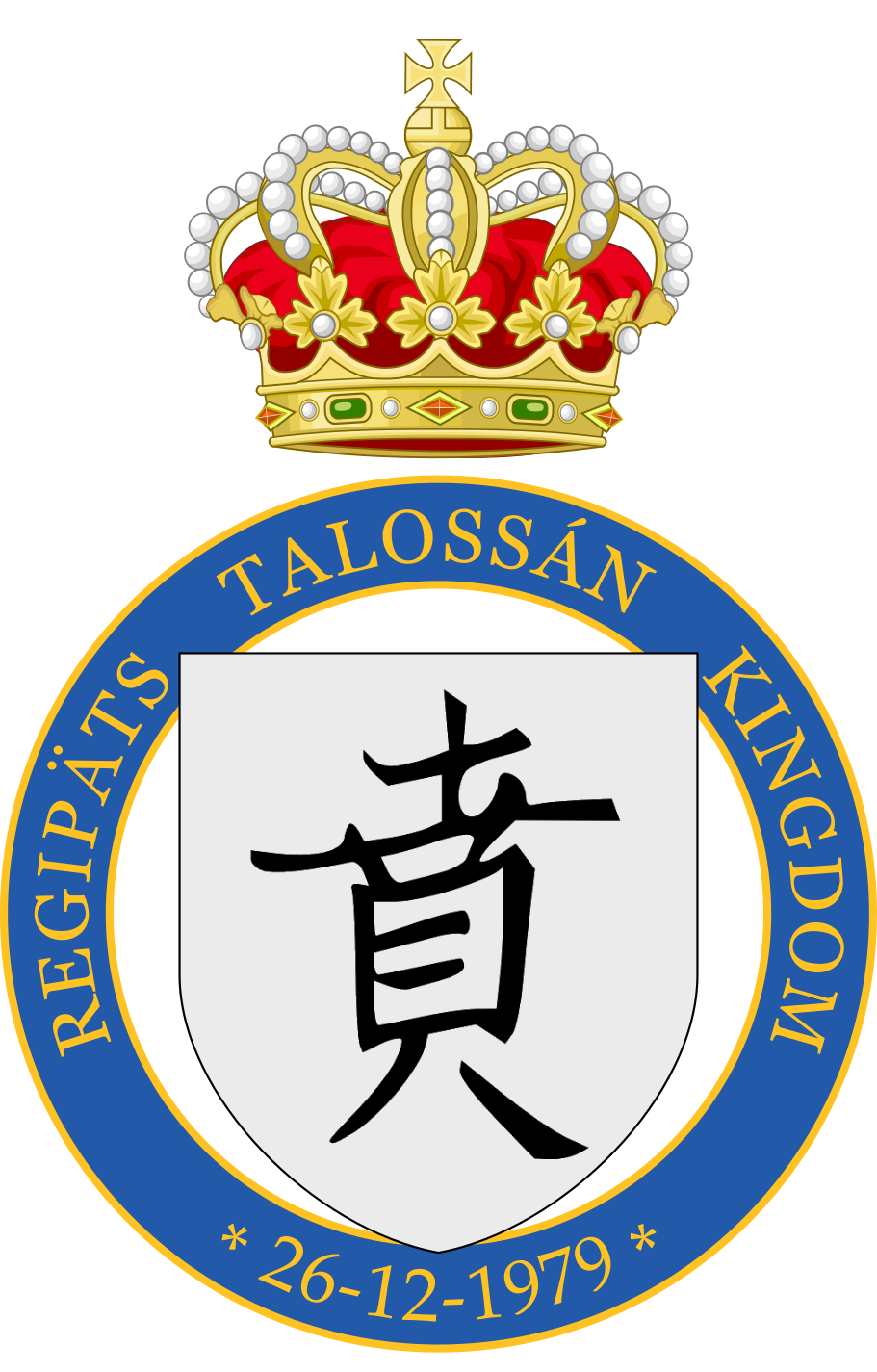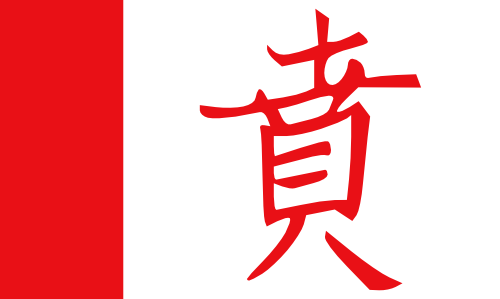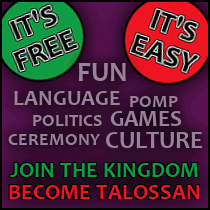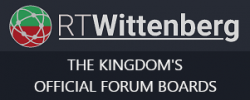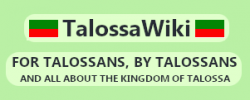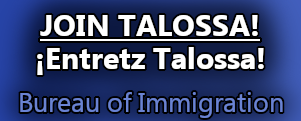Talossa has had numerous national symbols since the first day of its founding. These include, most prominently, the national flag and the national coat of arms.
Flag
The national flag, or the bicoloreu, consists of a green field over a red field (formally described as "Per fess vert and gules"). The green in the flag symbolises the Monarchy and its magnanimity, while the the red stands for the Talossans and their tenacity. This version of the flag was adopted on March 2nd, 1981/II. Initially, the national colors also possessed a white stripe, but this was thought to be too similar to other sorts of flags and was abandoned.
Behind Robert I hangs the original version of the flag, with an additional white stripe.
When Talossa is at war (to date, a singular occurrence), the flag must fly inverted, with the red stripe above the green. Aside from Talossa, only the Philippines adopts a similar rule.
Coat of Arms
- See our main article on this subject at National Coat of Arms.
- See our main article on this subject at National Coat of Arms.
The current coat of arms of Talossa, as maintained and described by the Royal College of Arms, is an image of a shield with the Chinese symbol for "Ben", surrounded by a circle inscribed with the date of the founding of the nation and topped by a crown. Formally, it is "argent the Chinese character 'Ben' sable," mantled by "an annulet azure fimbriated or bearing the words 'Regipäts Talossán Kingdom * 26.12.1979 *' Or," and topped with "a royal crown proper."
Seals
Greater State Seal
The Greater State Seal consists of the fully adorned arms of the Kingdom. This seal is used exclusively on documents or proclamations issued directly by the King.
The coat of arms is also supported by two squirrels standing on a ribbon bearing the national motto of "A Man's Room Is His Kingdom," in Finnish. It is formally described as "two Talossan squirrels proper standing upon a ribbon argent fimbriated at the chief vert and at the base gules bearing the motto Miehen Huone on Hänen Valtakuntansa ('A Man's Room Is His Kingdom')"
Lesser State Seal
The Lesser State seal consists of a rectangular white field with a red tierce at dexter, and the Ben symbol in red at right. It is used by Officers of the Royal Household, typically the Secretary of State, to indicate the royal authority on documents issued in the King's name.
Other National Symbols
- National Salute: Zog Salute
- National Pastime: Wargaming
- National Cuisine: Taco Bell; with Qdoba recognised as an emergency substitute
- National Berber Treat: Couscous
- National Entertainer: Gloria Estefan
- National Television Programme: Mystery Science Theater 3000
- National Motion Picture: Manos: The Hands of Fate
- National Mammal: Squirrel
- National Tree: Sugar Maple
- National Bird: Crow (formerly the pigeon)
- National Flower: Poinsettia
- National Insect: Pillbug (yes, we know it's not an insect)
- National Fish: Smelt
- National Major League Baseball Team: Maricopa Brewers
- National NFL Team: Florencia Packers
- National NBA Team: Benito Bucks



